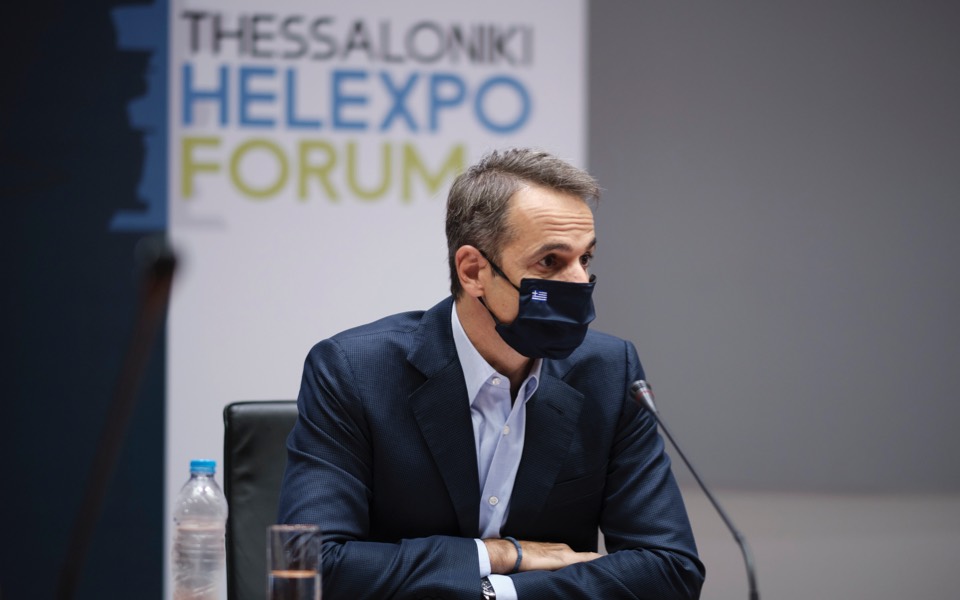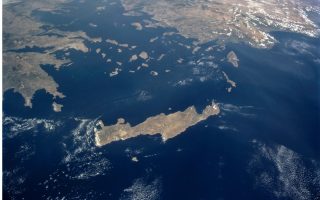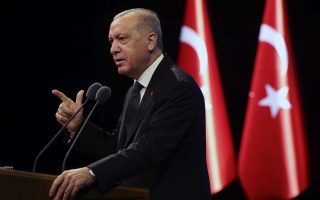The framework of negotiation

To negotiate with Turkey or not has been the key point of controversy in Greece for several years. Those opposed to the idea argue that Turkey’s expansionist claims are so extensive and unreasonable that any compromise would be tantamount to a harmful national concession. They also claim that even governments that were prepared to make certain compromises have been unable to reach an agreement with Ankara, precisely because its demands were too excessive for any Greek administration.
The dilemma is a false one because a negotiation in itself cannot do any harm to the country’s interests. What is important – and will determine the results – in any talks with Turkey is forming a national position with cross-party consensus on the framework that will be set and applied in the negotiations, the consistency of this framework and, ultimately, the ability of the people doing the negotiating. The challenge is to determine what we can give without harming vital national interests but that will also be sufficient to the other so that convergence can be achieved.
Speaking at the Thessaloniki International Fair last month, the Greek prime minister said that the delimitation of maritime zones in the Aegean and East Mediterranean is the main dispute between Greece and Turkey and that Athens is ready to pick up exploratory talks where they left off in 2016. His statement requires clarification, so that it gives a more complete picture of the course of exploratory talks so far, of the problems that have arisen and, most importantly, of the position Athens will maintain.
Greece has set the expansion of its territorial waters as a preliminary issue in the exploratory talks. It is important to note that the issue is not a subject of negotiation, as an expansion is the sovereign right of any coastal nation and, under international law, can be exercised unilaterally. Nevertheless, it had become a topic of negotiation in the exploratory talks, with different scenarios of selective expansion coming under investigation. The extension of territorial waters was later delinked from the issue of maritime borders as it was deemed a sovereign right.
Turkey, for its part, has claimed that apart from the issue of maritime borders, each country can raise any other subject it wants, and has put the demilitarization of the Greek islands in the eastern Aegean and matters concerning airspace on the agenda of the exploratory talks. It has also raised the issue of so-called “gray zones,” which constitute a challenge to Greece’s sovereignty and are non-negotiable as such. In Turkey’s rhetoric, in fact, the “gray zones” have now become “Turkish islands under Greek occupation” and the list even includes inhabited islands.
Given Turkish Foreign Minister Mevlut Cavusoglu’s remarks that all outstanding issues must be discussed and the two countries need to come up with equitable solutions in a give-and-take exercise, it becomes clear that the positions of the two states are opposites. Because a negotiation is not some inconsequential dialectical exercise, when the exploratory talks are launched the Greek positions and the framework of negotiation will have to be clear.
– What will Greece’s position be vis-à-vis the Turkish request that exploratory talks proceed with a comprehensive dispute resolution process that includes Turkey’s unilateral claims?
– Is Greece going to repeat “talks” on the extension of Greek territorial waters and would it be willing to accept a selective extension as a result of these talks, or does Athens consider that this is not a prerequisite and that a demarcation could proceed without an expansion?
– If a territorial waters extension is not a subject in the talks, then is Greece going to limit itself to a 6-nautical mile territorial sea in the Aegean, or will it extend the breadth of its territorial waters unilaterally notwithstanding Turkey’s objections?
– What will Greece’s position be on the issue of “gray zones”? Would it accept a deal that would not clearly stipulate Greek sovereignty over Greek islands, islets and rocky formations? How would it respond should Turkey push for the referral of this issue also to the International Court of Justice?
– What would the Greek position be on Ankara’s demand that the two sides discuss the demilitarization of certain or all eastern Aegean islands?
– Would a delineation include the continental shelf and the exclusive economic zone (EEZ) in the Aegean as well as the Eastern Mediterranean?
A crucial precondition for success for any government dealing with issues of national importance is keeping the public sincerely informed about developments. When a government employs secret diplomacy or when information is incomplete, people will inevitably resort to rumors and speculation and, ultimately, denial. Sure, there are limits to the degree that tactical moves can be disclosed. Tactical moves however are one thing while strategy is quite another. Keeping a strategy secret will prevent the public from understanding it and, as a result, be a stumbling block to it being politically accepted. As the new phase of exploratory talks is about to begin, it is crucial that the government clearly sets out the red lines and gives a clear and full picture of the objectives and positions on the crucial issues that arise.
Finally, it must be pointed out that a negotiator has little persuasive power when the nation he or she represents has no military clout. A state has as much independence and rights as it can effectively defend. Diplomacy is about managing power and no form of reaction is more effective than a high level of defense readiness. If there is a danger to Greek national interests it derives from the country’s inability to convincingly deter its enemies and not in its pursuit of a peaceful solution in continental shelf and EEZ delimitation via negotiations. Pressure is exerted where there is fertile ground. Greeks ought to follow the recommendation by the late Constantine Karamanlis: “Even if they want to pressure me, I won’t feel the pressure.”
Konstantinos Bitsios is an honorary ambassador.





